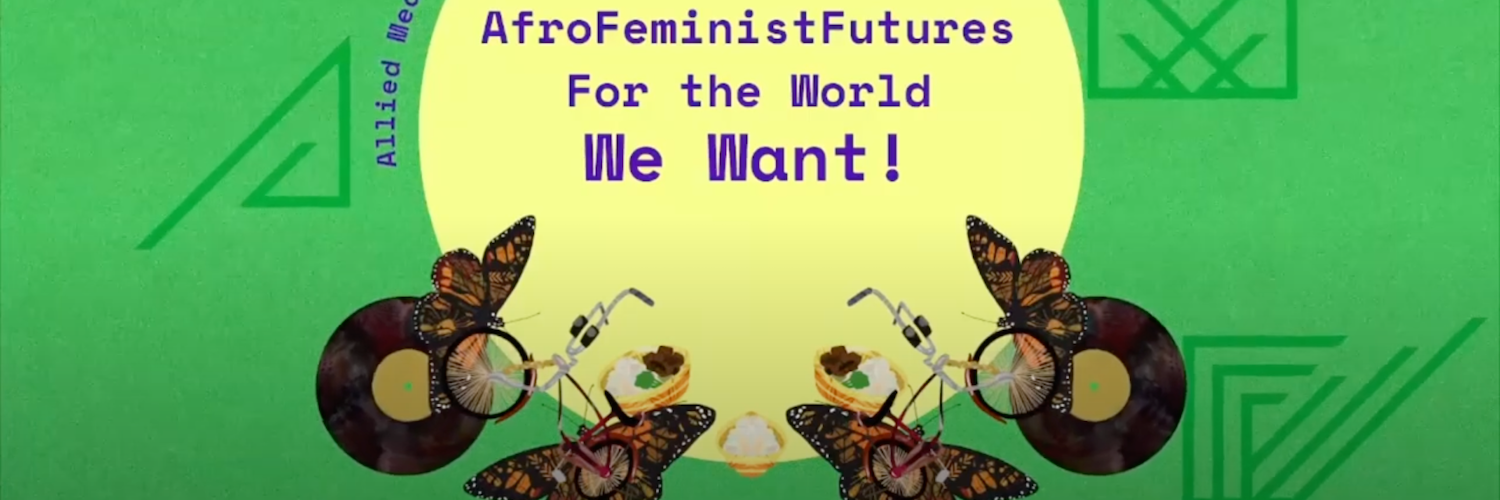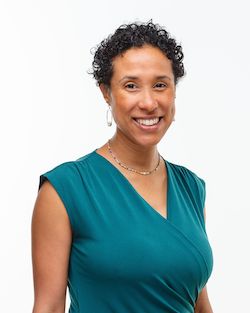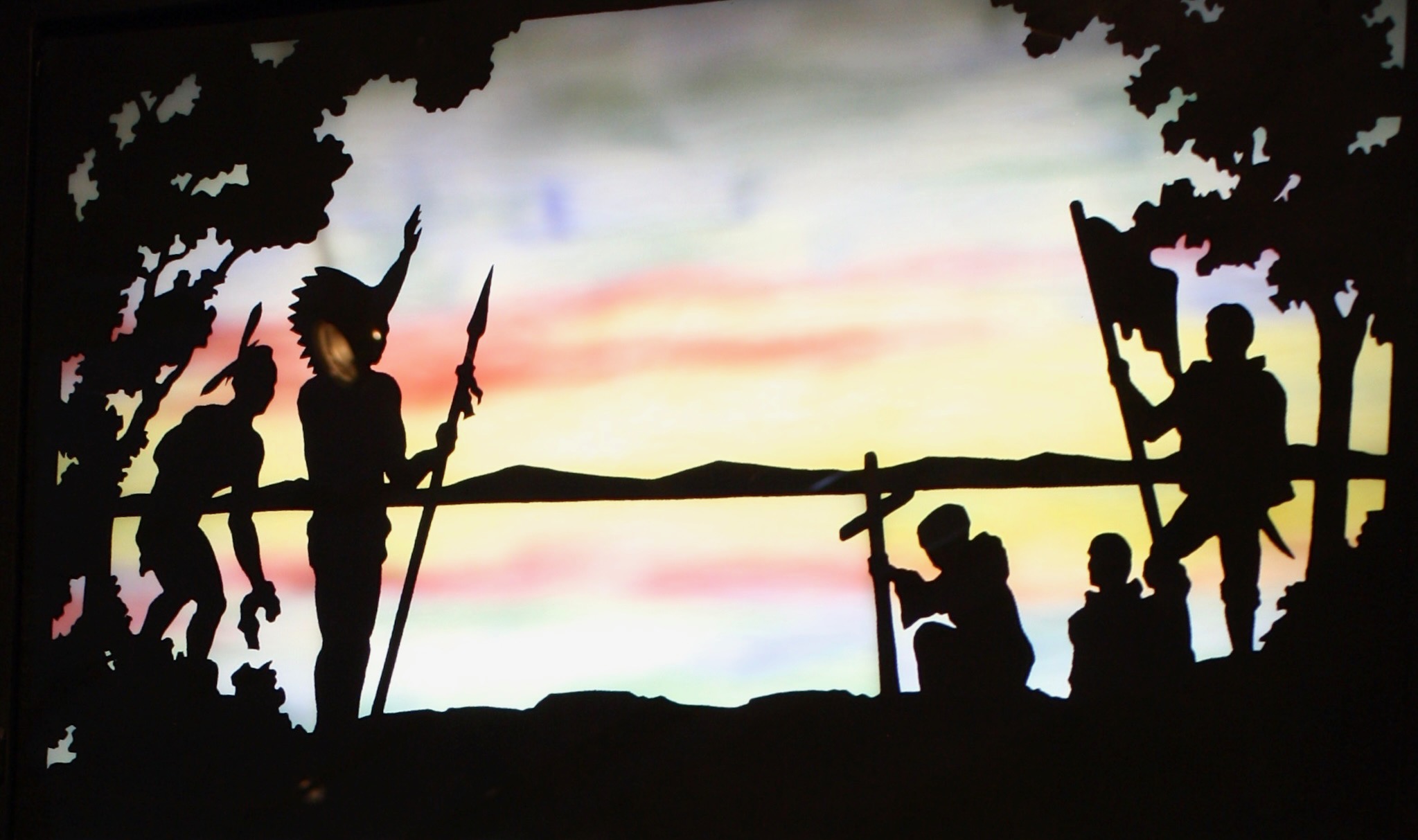Part 2: The beginning of an Analysis of Settler Colonialism Emerges at AMC 2022
Introduction
In the 1600s when enslaved Africans disembarked en masse and travel weary to this land mass, they arrived in a place where hundreds of Indigenous groups lived since time immemorial.[1] Since that moment The majority of the interactions between Black people and Indigenous Peoples living in the so-called United States occur(red) in the bloody context of settler colonial imperialism. Black people were kidnapped, trafficked, enslaved, segregated, imprisoned, and assassinated by individuals and a system that did not value our personhood, but sought to exploit our bodies and souls.[2] Indigenous peoples were (and continue to be) exploited, infected, schooled, silenced, relegated, and murdered by individuals and a system that did not (and does not) value their personhood, but sought (and seeks) to erase their bodies and souls.[3] In the 21st century, both remain tolerated but targeted, appropriated, and tokenized.[4]
In response to lived conditions, feminisms developed in various Black and Indigenous communities as part of resisting settler-colonialism, racism, sexism, capitalism and classism, and other forms of oppression. Feminist movements in Black and Indigenous communities have been proximate, overlapping, and mutually reinforcing, but also at times in tension with one another. Though both expansive areas of collective work, Black feminisms and Indigenous feminisms tend to center different aspects of the struggle for liberation. Some strain between movements comes from the inadvertent solidification of the settler state that can happen as some Black feminists struggle for their freedom and self-determination within the settler state without explicitly articulating an analysis of settler colonialism. Other tensions come from some Indigenous feminists’ refusal of participation in solidarity politics in a way that weakens ‘BIPOC’ coalitions facing repression, and various expressions of uninterrogated antiblackness. This paper posits that the Doctrine of Discovery (DoD), a 15th century set of religious and state decrees that facilitated Christian European global exploration and expropriation, is a ripe site to analyze together for both Indigenous and Black feminist organizers because it allows for the incorporation of an analysis of settler colonialism without de-centering issues that are essential to Black feminist theory and practice. As a Black feminist organizer with some experience organizing alongside Indigenous feminists, this set of four blogs will:
- Examine the absence of a settler colonial analysis in two moments in the theoretical lineage of US Black feminism–the Combahee River Collective statement of 1977 and the Allied Media Conference AfroFeministFutures panel in 2022.
- Explore opportunities presented for the inclusion of a settler colonial analysis
- Analyze how engaging the Doctrine of Discovery can be a way Black feminists incorporate an analysis of settler colonialism without de-centering the issues that are essential to Black feminist theory and practice.
- Imagine a future in which Black and Indigenous Feminisms make common cause, for the purpose of healing our lineages, and practicing the liberatory politics we aspire.
The beginning of an Analysis of Settler Colonialism Emerges at AMC 2022
Indigenous women from around Africa arrived to traditionally Native land bases that were often in turmoil. If the Indigenous nations of the place were able to escape genocidal attempts by European-Americans, they were being violently forced to relocate and under immense pressure to give up their sovereignty. The vast majority of Black women arrived enslaved (mostly laboring for whites and to a much less extent Indigenous slavers); a structure that sought to strip them of their specific nation, culture, and heritage and force into a social position devoid of structural agency within the context of the settler colonial contestation–that is to make them ‘Black slaves’. Black and Indigenous Feminist Futures Institute co-director Tiffany Lethabo King’s work reminds that in the ferocious porosity of the earth-cum-plantation, the genocide that happened on the plantation grounds could be felt by the Indigenous Africans as they recalibrated to the new, tragic vibrations of the soil… and that this feeling “shaped their experience of enslavement and Blackness.”1 They knew land and agroecology well, and could tell the land was disturbed.
Early on in the panel, Frazier noted that Black feminism was “a movement for Black women’s power that originated when we arrived on these shores.”2 Choosing to make the arrival of enslaved Africans to the US as the starting point for this struggle for power has consequences. The first is that it elongates the timeframe in which US-based Black feminism is generally understood to exist. It is usually circumscribed as a “1970s onward” phenomenon that refined and built on and contested whitestream feminism’s foundations. Frazier’s main point seemed to be that Black feminism did not start with white women’s experiences as its referent. The second consequence of Frazier’s comment situates the beginning of the Black feminist movement directly in a nascent US settler colonial context.3 Frazier was accessing the era before Black and Indigenous joint struggle against white possession and oppression was dispersed by colonial cacophony. “We can reinvigorate [those moments] and reactivate them and bring them into a now…” King insists.4 Frazier, initially winding up her answer about the challenges facing Black feminists and our allies took an additional moment to talk about colonization, Indigenous positionality, and land directly. She shared a crucial piece of data that only she knew, but by conveying it created an AfroFeministFuture that was not possible before her articulation:
Back in the day when we, Barbara and Beverly and I, were trying to write the [Combahee River Collective] statement, there is something about the statement that ‘if Black women are free, then everyone else will, of necessity, be free.’ And I still don’t feel 100% comfortable with that.
We are on land that was stolen and colonized and we struggle to make Indigenous women and the lives of Indigenous women at the center…and so I’m still trying to figure out how we braid those human experiences together so that when we talk about who’s—what does freedom really mean and for whom—I think we have to begin more…we have to expand our vision on that.
But again I’m not going to go on and on.” [someone from the audience far from the mic yells “go on!!” There is some laughter, and then rousing applause for Frazier’s words].5
With these words Frazier created an opening to discuss the concept of freedom in light of settler colonialism. What she meant by the half sentence “I think we have to begin more…” remains unclear. But the sentiment of the imperative for an expanded vision was one of the most poignant moments of the panel in terms of audience reaction and interaction from other panelists. As the enthusiastic applause died down, Ransby-Sporn began her comments, saying, “Wow, thanks for that. I want to talk more about that!” She pauses for an extended moment. However, her next comments spoke to the original question that was asked by moderator Bailey, as it related to Black women’s freedom and centering those experiencing racial, gender, sexual, and class oppression.
As often happens on panels, panelists’ comments are influenced by what they hear others say. The multi-vocal design of a panel is already a disruption to the one-keynote speaker model. I wonder if the way Ransby-Sporn later speaks about the Combahee River Collective framework, as a framework of orienting to whomever is the most marginalized in a given situation, may be influenced by Frazier’s comments. Either way it was a missed opportunity to speak further about the topic. Seeing their framework in this way, that it evolves over time, allows for greater openings for Black-Native revolutionary partnerships. Other than Frazier’s comment, Indigenous women were not explicitly named again in the panel. Relationships to land were mentioned by Love with regards to rematriation (what is known to be an entire movement in some Indigenous communities), and the importance of holistic, loving, and regenerative relationships Black women could have with the land if we were free to do so. Love then moved back into metaphor, speaking about the “social remediation of our soul soil.”6
The work Black feminists have done and continue to do is tremendous. Yet there remains a key missing piece in both the Combahee River Collective and the AMC AfroFeministFutures panel: a robust analysis of settler colonialism. This elision replicates settler colonial erasure of indigenous peoples, their lives, and theorizations. Indigenous feminist theorizing was not completely invisible, but more than a land acknowledgment and more than a mention emerging between official questions is necessary to address the conditions we seek to ameliorate and the oppression we work to destroy. In addition to solidarity, the ability to articulate what’s at stake for us as Black folks living in a settler colonial context is imperative for many reasons, the next section of this paper will discuss five.
Reasons to Integrate an Analysis of Settler Colonialism in Black Feminist Theory
Incorporating an analysis of settler colonialism in Black feminist theory will increase shared language and conceptual frameworks between it and Indigenous feminist theory. This sharing can create resonance powerful enough to cut through the colonial cacophony and help us, as Frazier articulated her desire, to braid our human experiences together. What follows are five reasons why I think this is important.
The first reason we must be able to articulate an analysis of settler colonialism is because Black feminists don’t want to participate in harming other communities. bell hook’s definition of love, which is a well-known animating force for Black feminism, is defined as “a combination of care, commitment, knowledge, responsibility, respect, and trust.”7 Hatcher brought that definition forth on the panel. Ransby-Sporn followed up saying that this love is incompatible with oppression. “The type of love we espouse requires accountability, reciprocity, consistency, and clarity. It is aligned and animates a radical politic and vision.”8 Settler colonialism, like slavery and racism, is a structure of the society, not an event in its history.9 It is an ongoing harm, and its assumptions are embedded in all racist and sexist policies and extra-legal actions.10 When our politics furthers the logic of elimination, however inadvertently, it becomes unloving, and requiring of accountability, un/learning, re/commitment, and change. Any refusal to take it seriously constitutes a move to innocence, which, even though we are not white people, reproduces the harm of settler colonialism associated with settler moves to innocence.11
The second reason is that Black feminists have an invitation to acknowledge our positions within empire, however revealing and humbling this may be. It’s an opportunity for self-reflective inquiry. Asking ourselves questions like, what does it mean to build wealth for ourselves and the Black community in a system based on white possession, Indigenous dispossession, and Black people as possessions? What does it mean to work for food sovereignty on stolen land? Critical Indigenous studies insists, in the words of Byrd, that:
settler, native, and arrivant each acknowledge their own positions within empire and then reconceptualize space and history to make visible what imperialism and its resultant settler colonialisms and diasporas have sought to obscure.12
As a part of Indigenous critical theories, Indigenous feminist theories invite such acknowledgment, reconceptualization, and visibilization to happen in combination with an analysis of how the enduring impacts of patriarchy and other interlocking systemic oppressions refract the societal positions of each settler, native, and arrivant. Furthermore, Indigenous feminist theories value place-based and contextual analyses that result in practical positive impacts in the lives of Indigenous women, their communities, and nations. The imperative to address patriarchy and other interlocking systems of oppression makes Indigenous feminists ideal co-conspirators for Black feminists. Responding to the invitation from other feminists through doing the hard work of developing shared language and a conceptual framework could bring us closer to together.
We wouldn’t be starting from zero. Tiffany Lethabo King, Cheryl Harris, and Tiya Miles, among others have written extensively. And as Frazier evidenced, even if a sentence of solidarity did not explicitly get in the Combahee River Collective statement there was a desire to also center Indigenous women’s experiences—especially Indigenous feminist theorizing and activism. The discussion around what got included or not must have been intense as Frazier is still uncomfortable with its omission 45 years later. This desire that got articulated explicitly in 2022, renewing the opportunity to build on it.
Third, there are women who are both Black and Indigenous. Challenging settler colonialism is a key part of their existence and resistance work, and since Black feminism cares about all oppressions that impact any Black women, settler colonialism should be very important to Black feminists. There are a number of content creators and movement leaders with this identity who are offering ideas and methods with regard to this, arising out of a variety of contexts, for example B. Anderson, Kailea Frederick, Sister Sadada Jackson, Shanya Cordis, Xhercis Méndez, Waltrina Middleton and more. Their intersectional leadership is important because it is not simply a matter of Black women ceding all central space to Indigenous women and only following. They bring together their identities in unique ways, have unique kinship networks, and their positionality as people who experience both settler-colonialism and racism in their life allow for a political orientation to imagine something like: Returning to Combahee together.
Fourth, shared language and analysis can assist in addressing ongoing antiblackness in Indigenous communities. Frazier noted in her comments that “many 19th century movements floundered due to racism, and really being able to see Black people as human equals remains a struggle today.”13 While Indigenous feminists generally have love and compassion for Black women and our communities, antiblack racism exists, even in activist spaces. I have experienced it personally. Furthermore, denial of the pervasive and global nature of antiblack racism as something that must be addressed in anticolonial structures has also created persistent tension between some activist groups. Language for Black people beyond the label settler is not solidified yet, but it can be quite painful when Indigenous people refer to all others as settlers. Learning the contours of another person or group’s anguish can create spaces of empathy where deeper levels of one’s own concerns can be shared. Given that “the building of a mass movement to leverage our powers will be an incredible challenge because most people are too conventional to appreciate feminist organizing,”14 Black and Indigenous feminists can reduce isolation by co- developing a response to settler-colonialism that is complex enough to address both the manifestations of dispossession and antiblack racism that exist simultaneously in the contexts in which we organize. The LANDBACK Manifesto’s language around the explicit connections between Black and Indigenous liberations addresses the dearth of addressing antiblackness in many other Indigenous and white settler anticolonial organizing spaces as well as sets a standard for other expressions of solidarity.15
Fifth, settler colonialism impacts Black women as well. In The White Possessive, Moreton-Robinson writes, “the question of how anyone came to be white or black in the United States is inextricably tied to the dispossession of the original owners and the assumption of white possession.”16(#_ftn16) Because settler colonialism impacted Black people, we can integrate an analysis of settler colonialism while still maintaining the movement’s integrity and a focus on the practical improvement of the lives of Black femmes and communities. Engaging the Doctrine of Discovery (DoD) can assist in this process because in addition to being the root of settler colonialism in the US and worldwide, this European colonial framework created the religious, legal, and mental justifications for invasion and slavery that negatively disrupted life on the continent of Africa.
References
-
AfroFeministFutures For the World We Want. Allied Media Conference, Allied Media Project, 2022. https://www.youtube.com/watch?v=iYM0Jf4mWjE
-
Arvin, Maile, Eve Tuck, and Angie Morrill. “Decolonizing feminism: Challenging connections between settler colonialism and heteropatriarchy.” Feminist formations(2013): 8-34.
-
Beloved Community, Asheville, North Carolina. https://becomingbelovedcommunity.org/doctrine-of-discovery.
-
Black Women Radicals www.blackwomenradicals.com
-
Byrd, Jodi A. The transit of empire: Indigenous critiques of colonialism. U of Minnesota Press, 2011.
-
Collective, Combahee River. “The Combahee river collective statement.” (self-published in 1977), cited in Words of Fire: An Anthology of African American Feminist Thought, ed. Beverly Guy-Sheftall (New York: New Press, 1995), 233.
-
Gilmore, Ruth Wilson. Golden gulag: Prisons, surplus, crisis, and opposition in globalizing California. Vol. 21. Univ of California Press, 2007.
-
Hayes, Kelly. “How to Talk about #NoDAPL: A Native Perspective.” Truthout, October 28, 2016. Retrieved from: https://truthout.org/articles/how-to-talk-about-nodapl-a-native-perspective/.
-
hooks, bell. All about love: New visions. Harper Perennial, 2001.
-
Indigenous Feminist Power Panel, https://www.youtube.com/watch?v=-HnEvaVXoto.
-
King, Tiffany Lethabo with brontë velez, “On the Black Shoals: Part 2” For the Wild. December 14, 2022, https://forthewild.world/listen/tiffany-lethabo-king-on-the-black-shoals-316.
-
Kivel, Paul. Living in the shadow of the cross: Understanding and resisting the power and privilege of Christian hegemony. New Society Publishers, 2013.
-
LANDBACK Manifesto. https://landback.org/manifesto/.
-
Lawrence, Bonita, and Enakshi Dua. “Decolonizing antiracism.” Social justice4 (102 (2005): 120-143.
-
Miller, Robert J., et al. Discovering indigenous lands: The doctrine of discovery in the English colonies. Oxford University Press, 2010.
-
Moreton-Robinson, Aileen. “Writing Off Treaties” Chapter 4 in The white possessive: Property, power, and indigenous sovereignty. U of Minnesota Press, 2015.
-
Tuck, Eve, and K. Wayne Yang. 2012. “Decolonization Is Not a Metaphor.” Decolonization: Indigeneity, Education & Society1: 1-40.
-
Wolfe, Patrick. “Settler Colonialism and the Elimination of the Native.” Journal of genocide research4 (2006): 387-409.
-
Doctrine of Disovery Papal Bulls: Dum Diversas 18 June, 1452, The Bull Romanus Pontifex (Nicholas V), January 8, 1455 and The Bull Inter Caetera (Alexander VI), May 4, 1493. Later expansions of these bulls include the Treaty of Tordesillas, June 7, 1494, the Patent Granted by King Henry VII to John Cabot and his Sons, March 5, 1496, The Requerimiento, 1513. https://doctrineofdiscovery.org/.
Footnotes
For more on the Black and Indigenous Feminist Futures Institute see http://www.biffinstitute.com/about-us/
-
King, Tiffany Lethabo with brontë velez, “On the Black Shoals: Part 1” For the Wild. December 7, 2022, https://forthewild.world/listen/tiffany-lethabo-king-on-the-black-shoals-315. ↩
-
Frazier, AfroFeministFutures For the World We Want. ↩
-
Other origin points could be women’s interventions in various forms of pre-modern African patriarchal systems, or Black women’s contact with Phoenician, Chinese, or European explorers, or in one small nation’s resistance to another nation’s regional hegemony in Africa, for example. ↩
-
King with velez, “On the Black Shoals: Part 2”. ↩
-
After answering the question on the AMC panel, at 35:32 Frazier makes her additional remarks. https://www.youtube.com/watch?v=iYM0Jf4mWjE ↩
-
Love, AfroFeministFutures For the World We Want. ↩
-
hooks, bell. All about love: New visions. Harper Perennial, 2001. ↩
-
Ransby-Sporn, AfroFeministFutures For the World We Want. ↩
-
Wolfe, Patrick. “Settler Colonialism and the Elimination of the Native.” Journal of genocide research 8.4 (2006): 387-409. ↩
-
Building on to Gilmore’s definition of racism here, ““Racism, specifically, is the state-sanctioned or extralegal production and exploitation of group-differentiated vulnerability to premature death.” in Gilmore, Ruth Wilson. Golden gulag: Prisons, surplus, crisis, and opposition in globalizing California. Vol. 21. Univ of California Press, 2007. ↩
-
Tuck and Wang, “Decolonization is not a metaphor.” ↩
-
Byrd, Transit of Empire, xxx. (Italics added) ↩
-
Frazier, AfroFeministFutures For the World We Want. ↩
-
Frazier, AfroFeministFutures For the World We Want. ↩
-
LANDBACK Manifesto. In conversation with Dr. Danika Medak-Saltzman, she says, “core beliefs of most Indigenous communities historically make clear there is an understanding of the human family and our responsibilities to each other. Decolonizing ought to mean eliminating the influences of colonization which always already should mean eliminating antiblackness within and across native communities.” https://landback.org/manifesto/ ↩
-
Moreton-Robinson, Aileen. “Writing Off Treaties” Chapter 4 in The white possessive: Property, power, and indigenous sovereignty. U of Minnesota Press, 2015. (page 84) ↩
SUGGESTED CITATION
Sarah Nahar, "Part 2: The beginning of an Analysis of Settler Colonialism Emerges at AMC 2022," Doctrine of Discovery Project (9 May 2023), https://doctrineofdiscovery.org/blog/river/beginning-analysis-settler-colonialism/.
Download citation formats:
Share on
X Facebook LinkedIn BlueskyDonate today!
Open Access educational resources cost money to produce. Please join the growing number of people supporting The Doctrine of Discovery so we can sustain this work. Please give today.



